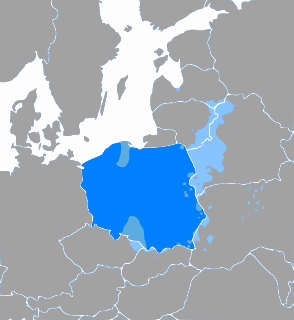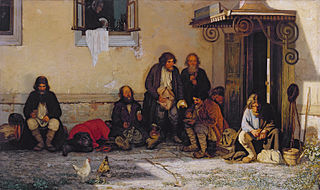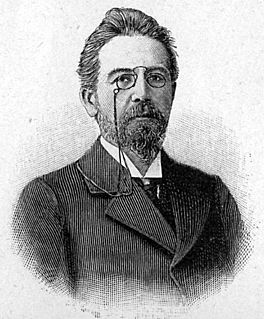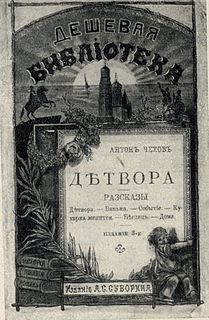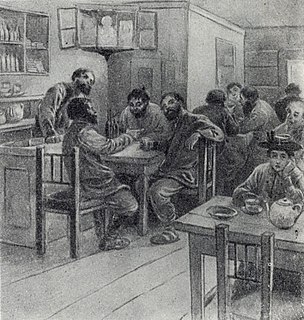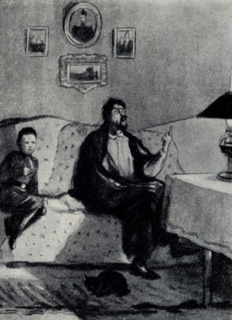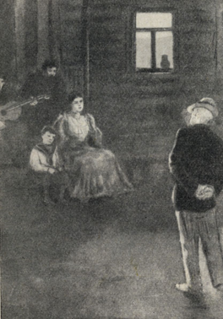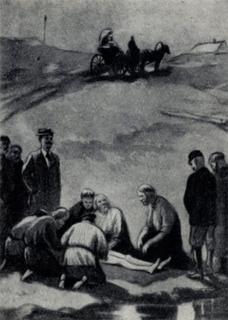| "Surgery" | |
|---|---|
1905 illustration by A.Apsit | |
| Author | Anton Chekhov |
| Original title | "Хирургия" |
| Country | Russia |
| Language | Russian |
| Published in | Oskolki (1884) |
| Publisher | Adolf Marks |
| Publication date | 11 August 1884 |
"Surgery" (Russian : Хирургия, translit. Khirurgiya) is a short story by Anton Chekhov, first published in 1884 by Oskolki . [1]

Russian is an East Slavic language, which is official in the Russian Federation, Belarus, Kazakhstan and Kyrgyzstan, as well as being widely used throughout Eastern Europe, the Baltic states, the Caucasus and Central Asia. It was the de facto language of the Soviet Union until its dissolution on 25 December 1991. Although, nowadays, nearly three decades after the breakup of the Soviet Union, Russian is used in official capacity or in public life in all the post-Soviet nation-states, as well as in Israel and Mongolia, the rise of state-specific varieties of this language tends to be strongly denied in Russia, in line with the Russian World ideology.

Romanization of Russian is the process of transliterating the Russian language from the Cyrillic script into the Latin script.

A short story is a piece of prose fiction that typically can be read in one sitting and focuses on a self-contained incident or series of linked incidents, with the intent of evoking a "single effect" or mood, however there are many exceptions to this.



